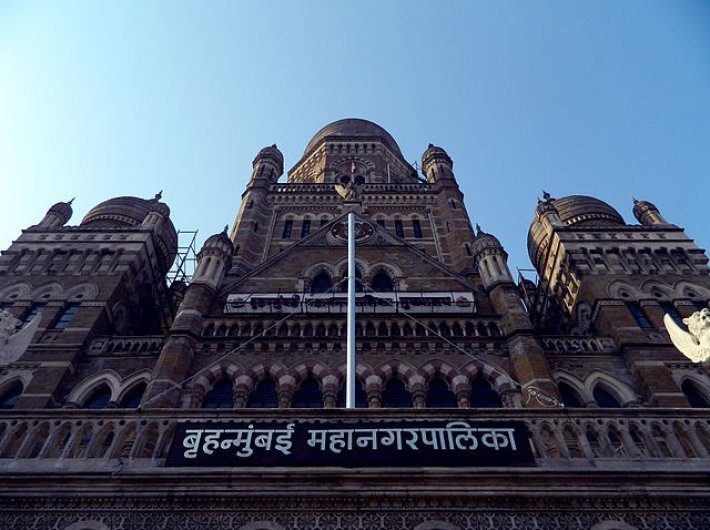With the surge in the number of Covid-19 cases over the past few days in several districts of Maharashtra as well as in the city of Mumbai, stringent measures are making a comeback.
BMC municipal commissioner Iqbal Singh Chahal on Thursday announced stricter rules against those flouting Covid-19 appropriate behaviour. He held a video conference with all additional municipal commissioners, zonal joint commissioners, deputy commissioners and assistant commissioners of all ward offices along with concerned. He reviewed the situation and gave necessary directives to all concerned MCGM machineries to be extra vigilant.
Chahal said the spread of coronavirus in the city is still under control in comparison to June-July 2020, yet, with the number of cases on the rise the system needs to be vigilant. “As public life returns to normalcy it becomes all the more important for citizens to follow all Covid-prevention norms, especially since the threat of coronavirus is not over yet. It is important to take stringent action against offenders to limit the spread of the virus.”
Buildings with more than five Covid-19 patients have now been ordered to be sealed. In municipal wards with rising number of Covid-19 cases action will be taken on the lines of Mission Zero. Area mapping will be done in order to test maximum number of people in such wards. In addition, at least 15 close contacts per COVID-positive patient should be tracked and kept in isolation.
In slums, narrow settlements and densely populated areas, health check-up camps should be organised along with NGOs to identify suspects and patient search should be continued through mobile clinics with emphasis on testing.
All asymptomatic patients being treated at home (‘home quarantine’) will continue to be stamped as earlier and their information should be communicated to their respective societies. Ward War Rooms have been instructed to closely monitor the patients. They should be contacted via landline telephone five to six times a day to ensure that they are at home. Close contacts of Covid-positive patients should be isolated after taking complete information of the patient. As per the directives, if any asymptomatic patient steps out of the house or walks around in any public space before completion of home quarantine period, housing societies should cooperate with MCGM and inform their respective ward war rooms. Similarly, ward war rooms have been instructed to take legal action against such patients. Such patients who violate norms will then be subjected to compulsory institutional quarantine.
Use of mask is mandatory in wedding ceremonies, gymkhanas/clubs, nightclubs, restaurants, cinema halls, religious places, playgrounds/gardens, public places, shopping malls as well as all private offices. If it is found that masks are not being used and more than 50 people are found gathered at a place fines will be imposed on all such violators and establishments and managements will be prosecuted.
Officers have been told to do regular inspection of halls and marriage halls and conduct raids and inspection on at least five such places every day.
Legal action should be taken against organisers of the wedding as well as parents of the bride-groom and the concerned management if any rules are found to be violated MCGM teachers will be deployed at all buildings, offices, hospitals etc. managed by MCGM with powers to take punitive action against those roaming without masks.
In order to take action against those found wearing masks improperly and found spitting in public places the number of 2,400 marshals currently working in Mumbai will be doubled to 4,800.
For those found roaming without mask, as against punitive action on 12,500 people at present, the target now has been increased to 25,000 people. Mumbai police are now being empowered to take action against such unmasked citizens where it can also act as marshals by imposing fines on the violators.
For taking punitive action against unmasked travellers on the Western, Central and Harbour suburban railway services in Mumbai, a total of 300 marshals will be deployed (100 marshals on each line).
For monitoring of all places of worship, women marshals are being deployed along with male marshals and roaming without a mask, gathering of more than 50 people at a time or any such violation will lead to punitive action.
At least one of either centres, ie, Covid Care Centre 1 (CCC1) for high risk contacts and Covid Care Centre 2 (CCC2) for asymptomatic patients, will be kept functional in each ward. The MC has ordered adequate availability of regular and oxygen beds at Jumbo Covid Centres. Disaster management department should update information on Covid-19 patients, availability of beds and other necessary information from all government and private hospitals within the MCGM jurisdiction by collecting it every hour through the dashboard.
In line with the Government of India directives, MCGM has started keeping all passengers coming to Mumbai from Brazil under mandatory seven-day institutional quarantine.
Earlier in the day, chief minister Uddhav Thackeray said that the threat of Covid-19 is still not over yet with the new strain of the virus spreading in some parts of the World. “While the vaccination drive is on in full swing across Mumbai and Maharashtra and since the number of Covid-19 cases have been on the rise for the past few days all precautions must be taken.”
Elsewhere in the state, the authorities in Amravati division have re-imposed strict restrictions in all its five districts (Amravati, Akola, Yavatmal, Buldana and Washim). A ‘partial lockdown’ is imposed in Akola and Amravati, restricting movement in public from 5 pm on Saturday to 7 am on Sunday.



